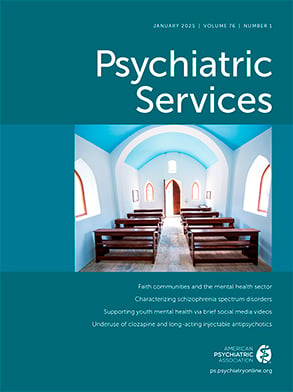Maternal health care in Singapore has been largely centered on specialist obstetric services. Yet psychiatric problems in the perinatal period can have significant adverse effects on both mother and infant. Despite prevalence rates of postnatal depression at or exceeding 7% and peripartum depressive symptomatology seen with up to 20% of pregnant women, there has been a service gap in early detection of and intervention for these problems. With a lack of trained perinatal mental health workers, we built a multidisciplinary team to focus on this much needed area, which consisted of psychiatrists, perinatal mental health case managers, medical social workers, an occupational therapist, and a psychologist.
The Postnatal Depression Intervention Programme was launched in April 2008. In the screening phase, women returning for postnatal follow-up two weeks to six months after giving birth were assessed with the Edinburgh Postnatal Depression Scale (EPDS), administered by trained perinatal mental health case managers. Women scoring <12 were offered psychiatric assessment and intervention, and those scoring 10–12 points, indicating borderline depression, were provided counseling support by trained case managers.
Early intervention for the high scorers included full psychiatric and needs assessments, with supportive therapy and psychoeducation, problem solving, and focused counseling by the case managers, who incorporated principles of interpersonal and cognitive-behavioral therapy. Antidepressants were recommended for women with depression of moderate severity, with breastfeeding status taken into account. The case management model provided integrated, individualized, and continuous care from screening to intervention. Patients were encouraged to join our support group. For women with more entrenched psychological difficulties, formal psychotherapy was provided by the team psychologist. Women with mother-infant bonding difficulties were referred to occupational therapy for baby massage, and those with social problems, such as marital conflicts, were referred to the medical social worker or appropriate community resources (such as Healthy Start, a program for disadvantaged mothers).
From April 2008 to September 2009, a total of 2,163 women were screened, representing 69% of the 3,150 women who visited the target clinics. Of these, almost half were foreign born, suggesting that this program is applicable to a global community. Of the 2,163, 87% scored below 10 on the EPDS, with 5% having borderline scores of 10–12. Eight percent were assessed to have probable postnatal depressive illness (EPDS score <12). These rates reflect the worldwide prevalence rates of postpartum depression.
Of the 176 high scorers, 36% completed the intervention, which lasted between three and six months, depending on each woman's needs. The rest declined referral for various reasons, such as no time, cost concerns, the stigma of receiving a psychiatric diagnosis, or because they did not believe they had postpartum depression despite psychoeducation. Two women left Singapore. With clinical intervention, 87% of the women showed at least a 20% improvement in symptomatology on the EPDS, with 78% (32 women) dropping to below the cutoff score of 13. Eighty-three percent had a reduction in Global Assessment of Functioning scores, indicating improvement in function and symptoms, and reduction in the Euroqol Health Index scores, indicating improved health-related quality of life. A number of women who had no change in or increased scores on the outcome measures faced social problems that contributed to their ongoing distress, particularly ongoing marital conflicts and lack of social support.
In the first year of the program, women who accepted clinical intervention presented for care significantly later in the postpartum period than those who declined (8.0 versus 4.3 weeks; p<.05) and had significantly higher mean baseline EPDS scores (19.1 versus 15.8; p<.05). The improvement in EPDS scores between those who participated in the intervention and those who declined clinical care was statistically significant (12.9 versus 10.7; p<.05). The high scorers who declined psychiatric intervention were provided phone counseling and support by the case managers. When the EPDS was readministered, three-quarters of the women had lower scores, indicating improvement in postpartum depression.
Of note, 64% of the high scorers declined referral to a psychiatrist despite encouragement from well-trained case managers. Women who accepted clinical care presented for screening later than those who declined care, possibly reflecting a longer duration of distress, although the onset of symptoms was not studied. At screening, these women were provided with telephone contact and educational material, and some of them later returned voluntarily into care.
The program has also been acceptable to women, with more than 95% reporting their satisfaction with supportive counseling. Seventy-one percent felt similarly about the clinical intervention. Our current focus is on public education and enhancing awareness to destigmatize postpartum depression.
Many women struggle on their own or present for care late in their postpartum period, after the impact of depressive symptoms has set in. With an appropriate tiered-care approach, wherein trained mental health care staff provide frontline assessment and care and refer only those with significant psychological problems to the psychiatrist or psychologist, we believe that this postpartum depression screening and intervention model has potential for other localities with limited resources.

